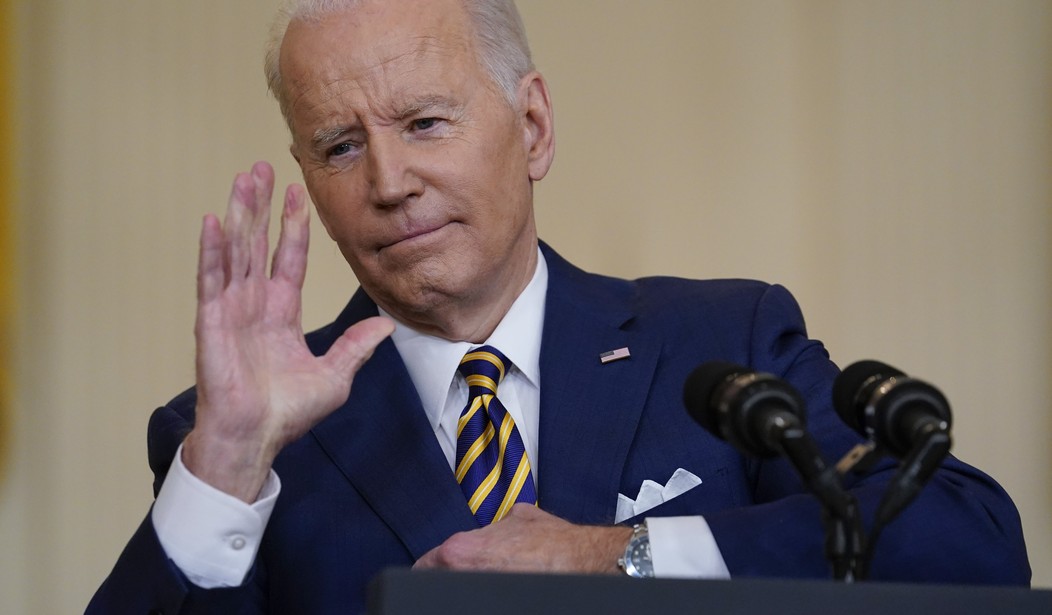Did any media outlets report that officially arranged exfil flights out of Taliban-held Afghanistan had stopped? Well, they’re off the hook now, thanks to a deal cut by Qatar with the new regime in Kabul. Axios reports this morning that the flights on which Americans could get out of Afghanistan had stopped months ago, but will soon restart (via Andrew Malcolm):
Qatar has reached a deal with the Taliban to resume chartered evacuations out of Kabul’s airport, ending a dispute with the Afghan government that’s caused a months-long pause in flights, the Gulf nation’s foreign minister told Axios.
Why it matters: The agreement for two flights per week, chartered by Qatar Airways, will allow the U.S. and other countries to evacuate thousands more of their own citizens and at-risk Afghans who face dual threats of Taliban retaliation and a humanitarian crisis.
The last time we got an updated number of abandoned Americans exfiltrated from Afghanistan was in mid-December. At that time, the total came up to just under 950 — out of 14,000 Americans left behind in Joe Biden’s disgraceful rout out of Kabul. The State Department has been mighty quiet about it since then, apparently hoping to avoid the fact that they couldn’t get flights out any longer.
Of course, private exfil efforts led by Americans have continued. Our friend John Ondrasik of Five for Fighting has worked with several groups to get funding and support for those projects, and now has a podcast called “Meet the Heroes” to make those efforts more visible. The State Department, on the other hand, not only has tried to bury the story but was “actively impeding” private efforts, according to these same groups a few weeks ago.
The resumption of Kabul-Doha flights on a more official basis will hopefully result in a faster exfil pace. It’s already paying off for Qatar, though:
The big picture: Qatar’s emir Sheikh Tamim bin Hamad Al Thani on Monday became the first Gulf leader to visit Biden at the White House, where the president announced he is designating Qatar as one of 17 major non-NATO allies. …
Qatar agreed in November to represent U.S. interests in Taliban-led Afghanistan and has enjoyed increasingly close relations with the U.S. after four years in which former President Trump favored its Saudi and Emirati rivals.
CNS News picked up on this curious juxtaposition, too, as well as another curious juxtaposition:
With President Biden’s decision to designate Qatar as a major non-NATO ally, the oil- and gas-rich Gulf state joins a small group of countries eligible under U.S. law for special military and economic privileges.
Biden hosted Emir Sheikh Tamim Bin Hamad al-Thani in the Oval Office on Monday, and praised Qatar as “a good friend and a reliable and capable partner.” …
In the Oval Office on Monday, Biden underlined Qatar’s contribution in Afghanistan, and also credited the emirate for “maintaining stability in Gaza and providing lifesaving assistance to the Palestinians.”
The president did not, in his public comments, refer to Hamas, the U.S.-designated foreign terrorist organization that seized the Gaza Strip violently in 2007. Hamas has been responsible for the deaths of hundreds of Israelis and others – including at least 15 Americans killed between 1993 and 2002 – in suicide bombings and rocket attacks.
As well as being a leading provider of humanitarian and financial aid to Gaza, Qatar has for years been a major supporter of Hamas, and the emir personally meets regularly with Hamas leaders – including a meeting last May, a phone call the same month, and meetings in January 2021 and December 2019.
Qatar’s sympathies with radical Islamists, including Hamas and the Muslim Brotherhood (out of which Hamas emerged in 1987) caused a serious rift with some of its Gulf neighbors, and from 2017 until early last year it was subjected to punitive sanctions by Saudi Arabia, the United Arab Emirates (UAE), Bahrain, and Egypt.
We have always had a tricky relationship with Qatar, which has at times served as sort of a Rick’s Cafe Americain in the Middle East. Qatar has links everywhere, which makes them useful if not necessarily reliable for indirect talks with less-than-savory groups. The US based its command functions in Qatar for the first Gulf War, though, and has tried to maintain a strategic relationship all along. Giving them MMNA status with their ties to Hamas, however, sounds like a particular quid pro quo that would only have been necessitated by Biden’s catastrophic withdrawal from Afghanistan and the abandonment of thousands of Americans.
Such are the consequences of incompetence. We have to climb fully into bed with Hamas’ ally to rescue Americans from the Taliban. When will the media report this? Outside of CNS News, um …







Join the conversation as a VIP Member